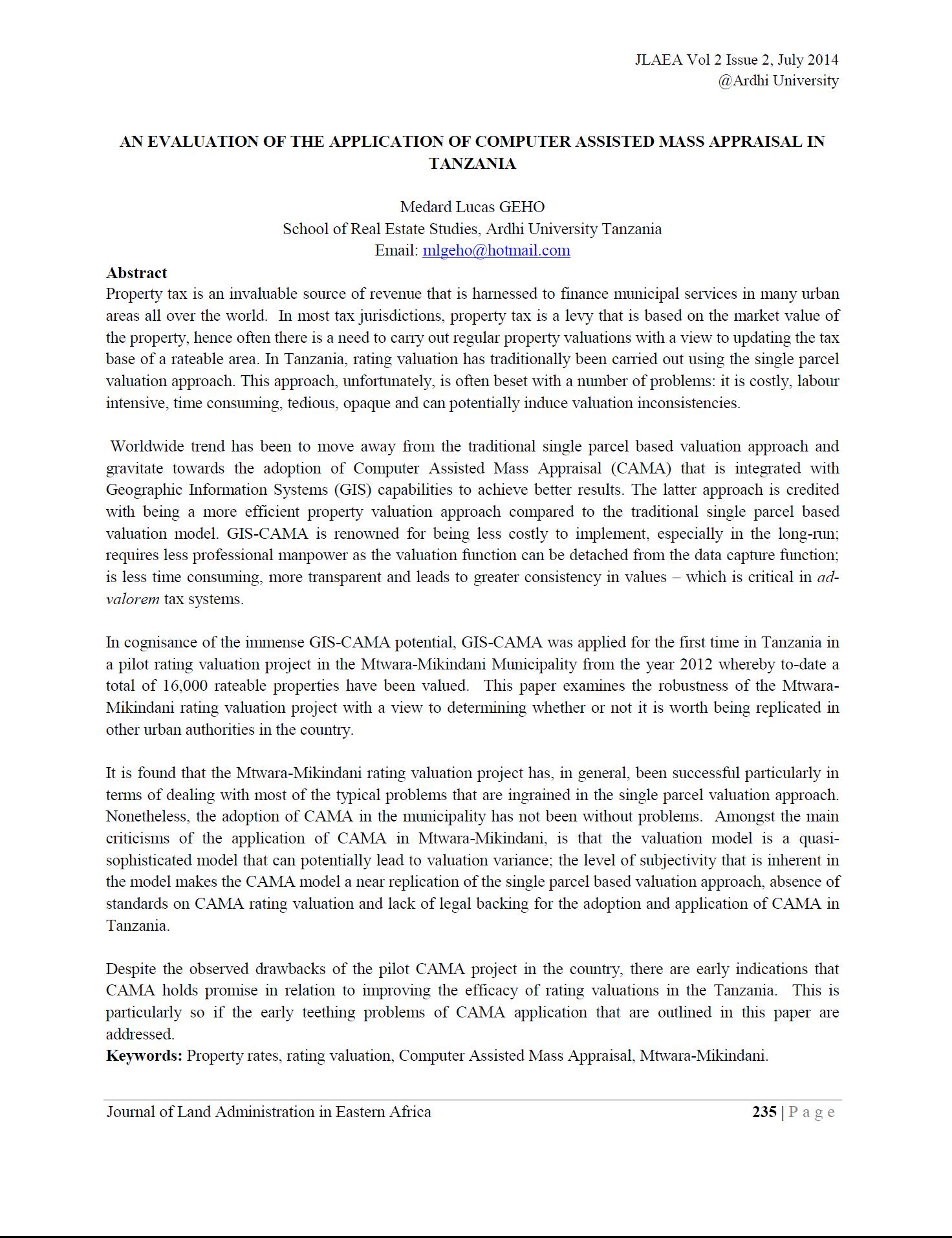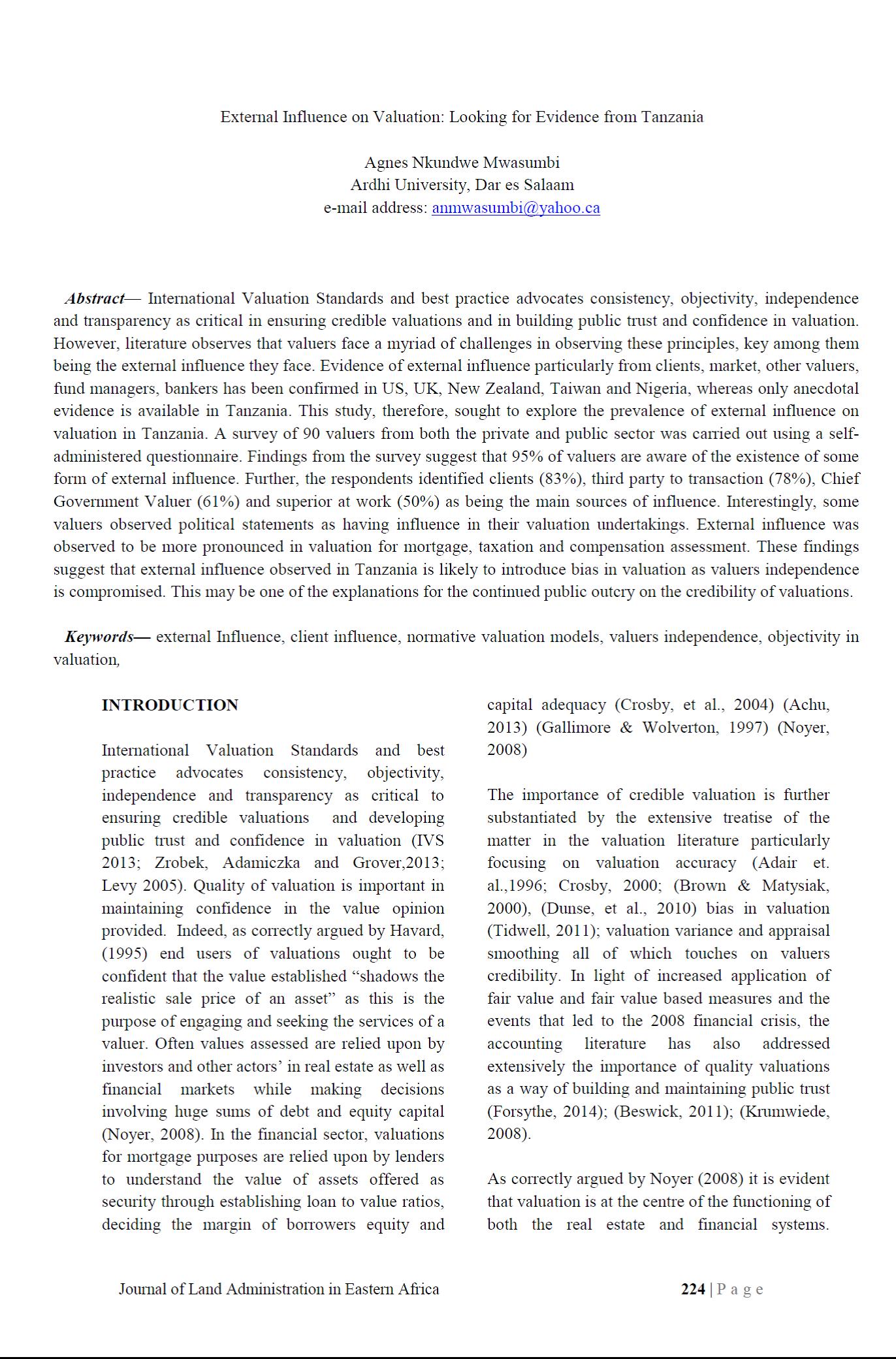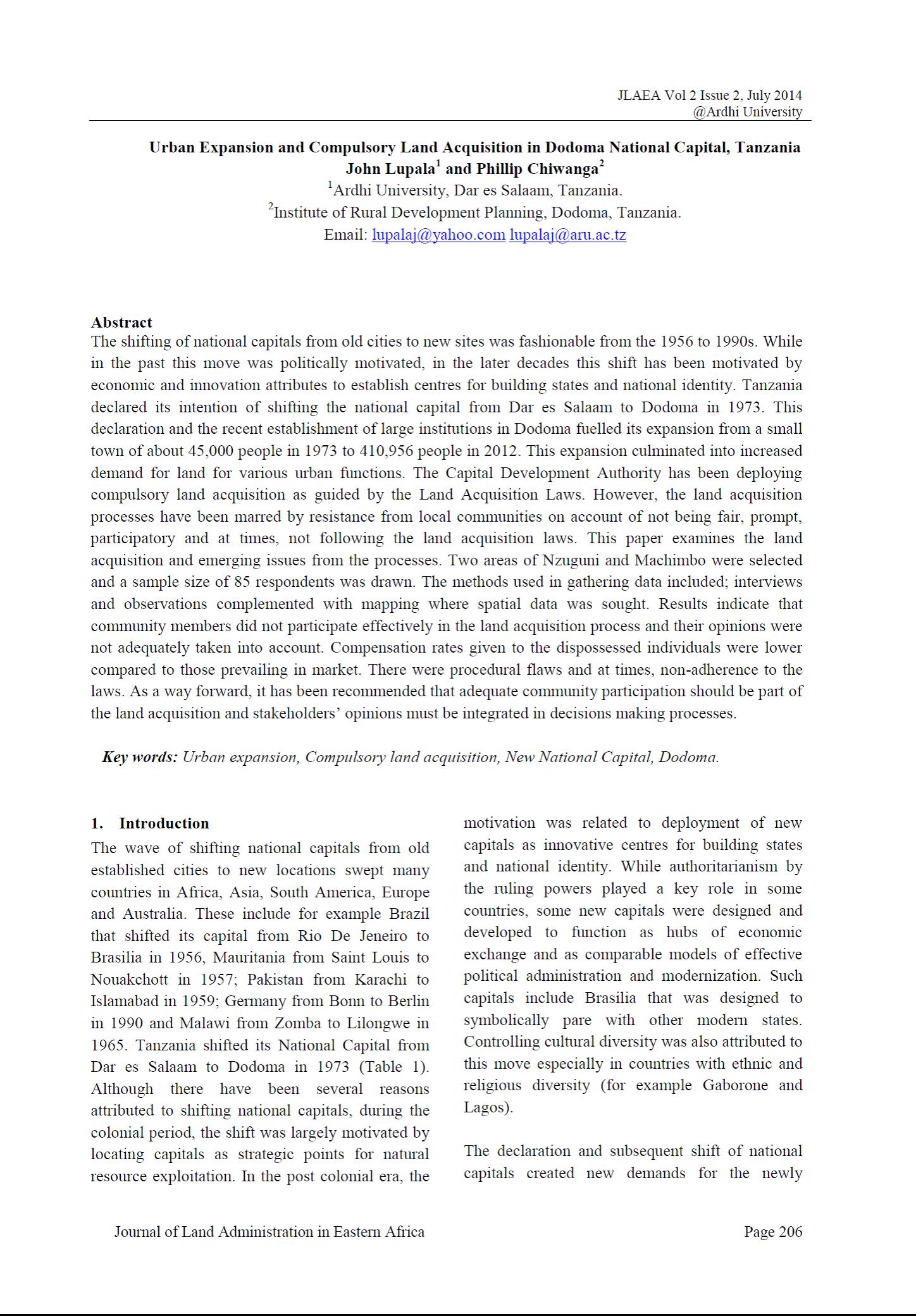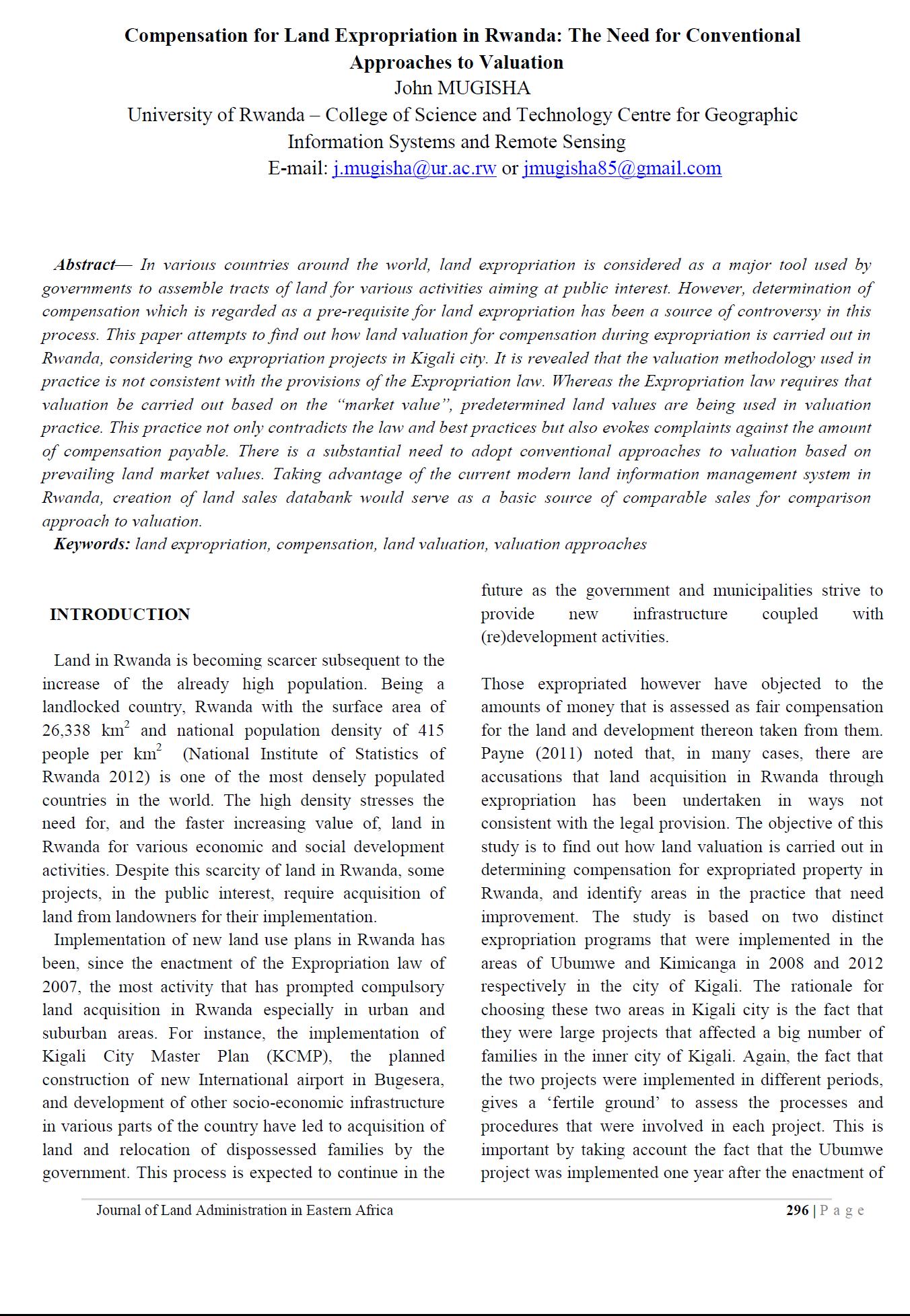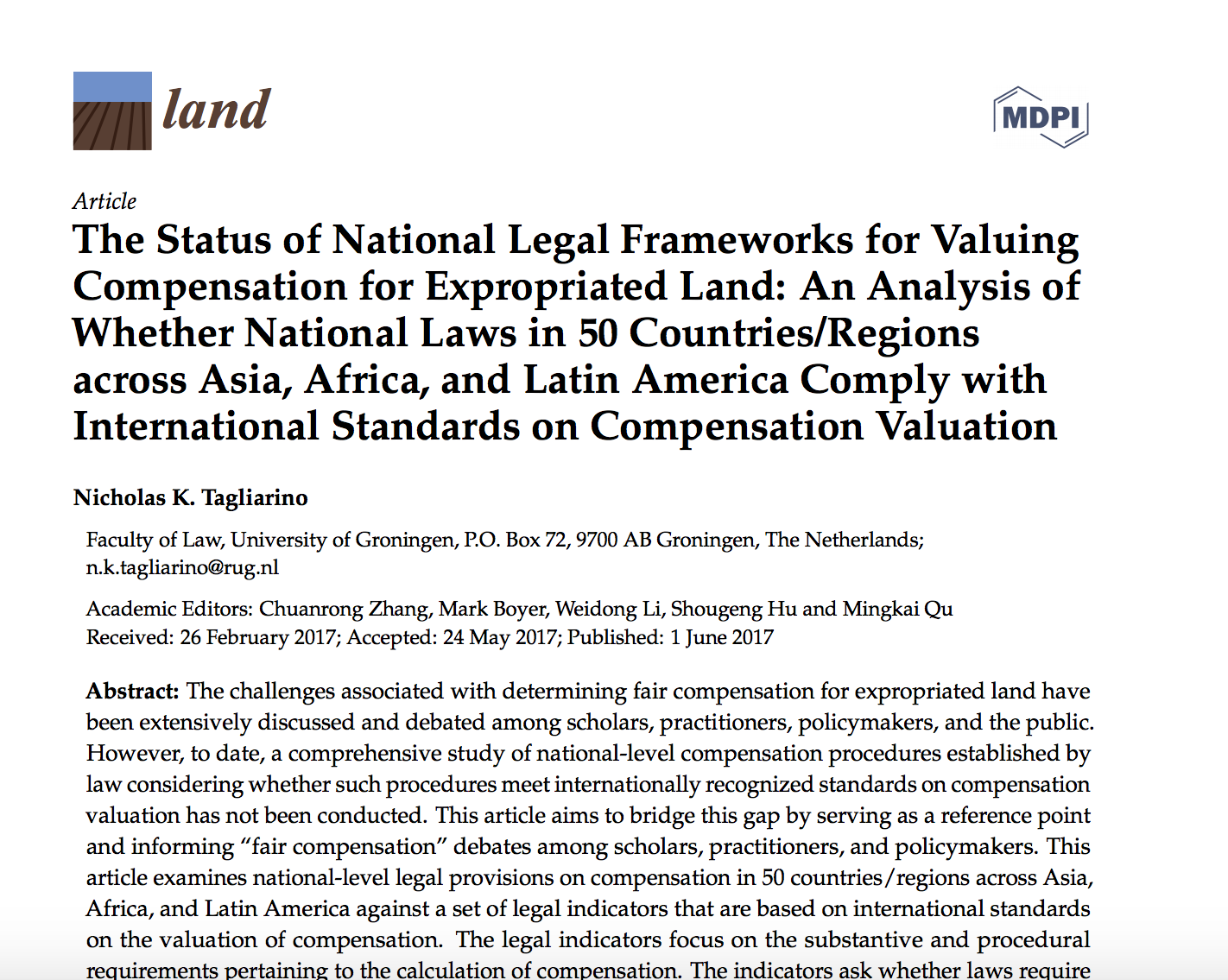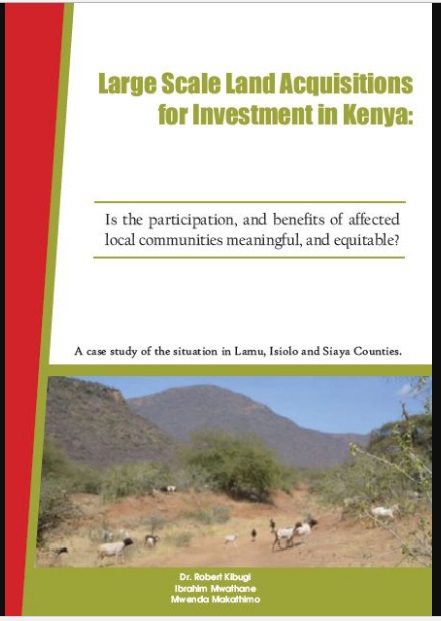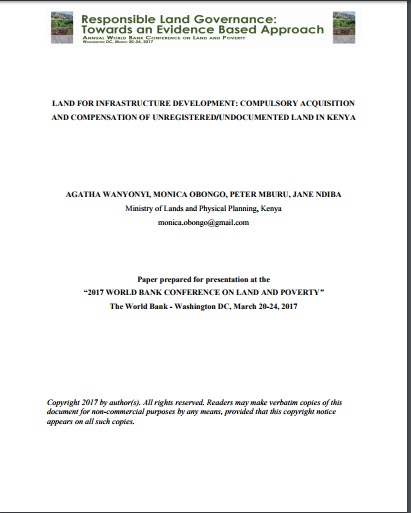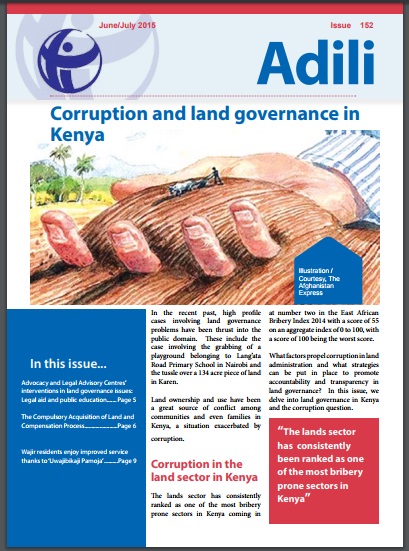AN EVALUATION OF THE APPLICATION OF COMPUTER ASSISTED MASS APPRAISAL IN TANZANIA
Property tax is an invaluable source of revenue that is harnessed to finance municipal services in many urban areas all over the world. In most tax jurisdictions, property tax is a levy that is based on the market value of the property, hence often there is a need to carry out regular property valuations with a view to updating the tax base of a rateable area. In Tanzania, rating valuation has traditionally been carried out using the single parcel valuation approach.

